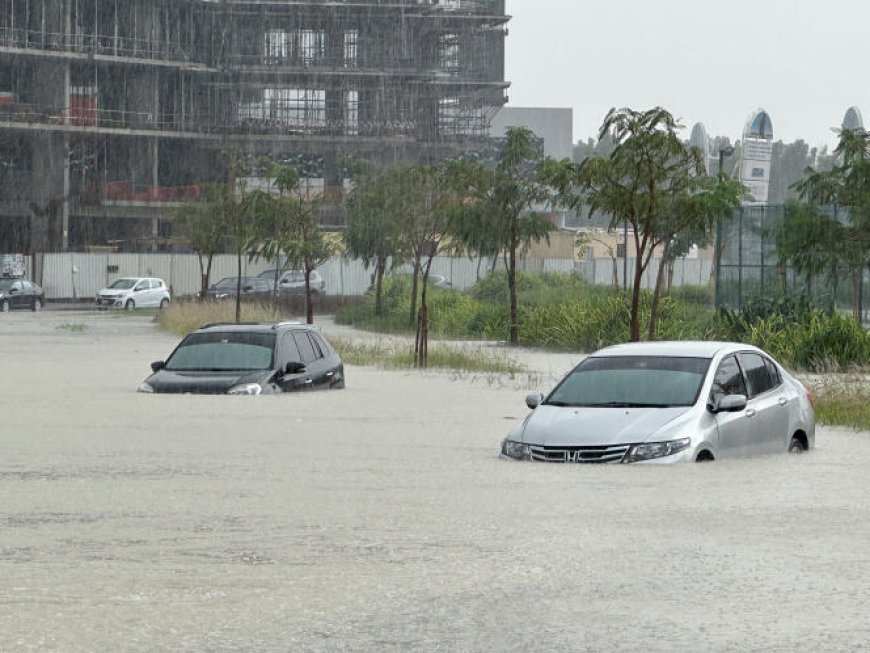Heavy rains cause havoc in the Gulf

HEAVY rain has battered some Gulf states, causing flash flooding across the region and leading to flights to the world's busiest international airport being diverted.
Dubai Airport said operations were "temporarily diverted" - though they have since restarted.
Authorities in Oman said at least 18 people had been killed by floods.
Several states recorded nearly a year's worth of rain in a day.
An unverified video from Dubai International Airport appeared to show jets leaving waves in their wake as they made their way down flooded runways.
In a statement, the airport said inbound flights due to arrive on Tuesday evening had been diverted "due to the continued exceptional weather event currently being experienced in the UAE".
Departures would continue to operate, it added. Flights later restarted after an interruption of about two hours.
On Tuesday morning, the UAE's National Centre of Meteorology issued a weather warning for large swathes of the country, including Abu Dhabi, Dubai and Sharjah.
The Gulf region is usually known for hot and dry weather, though heavy rains causing flooding have also occurred with greater regularity in recent years.
In neighbouring Oman, authorities said the death toll from flash floods had increased to 18, with some still missing. The dead included 10 students aged between 10 and 15 who were killed on 14 April when the vehicle they were travelling in attempted to cross a flooded area but was swept away.
In Bahrain, footage showed cars stranded in flooded roads.
Scientists have linked the unusual weather to climate change, saying exceptional storms will become more common in future as the planet warms.
For every 1C rise in average temperature, the atmosphere can hold about 7% more moisture. This can result in more droplets and heavier rainfall, sometimes in a shorter space of time and over a smaller area.
The UAE - one of the world's biggest oil producers - hosted last year's COP28 climate change conference.
Schools across the UAE, a federation of seven sheikhdoms, largely shut before the storm and government employees were mostly working remotely.
Many other workers also stayed at home, although some ventured out, with the unfortunate finding themselves stranded in deeper-than-expected water after the water stalled their vehicles’ engines.
Authorities sent tanker trucks out into the streets and highways to pump away the water, but some homes were also inundated forcing residents to bail them out.
The country did not offer any information on the overall damage. In Ras al-Khaimah, the country’s northernmost emirate, police said one 70-year-old man died when his vehicle was swept away by floodwater.
Fujairah, an emirate on the UAE’s eastern coast, saw the heaviest rainfall on Tuesday with 145mm (5.7 inches) falling there.
Authorities cancelled school and the government instituted remote work again for Wednesday.
Rain is unusual in the UAE, an arid, Arabian Peninsula nation, but it does occur periodically during the cooler winter months. Many roads and other areas lack drainage given the lack of regular rainfall, causing flooding.
Rain also fell in Bahrain, Qatar and Saudi Arabia.
